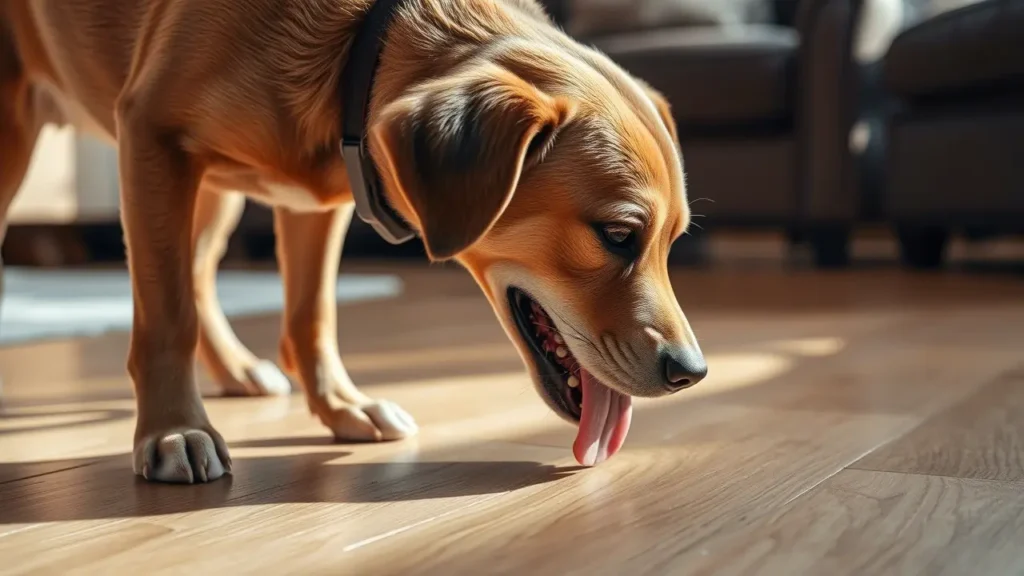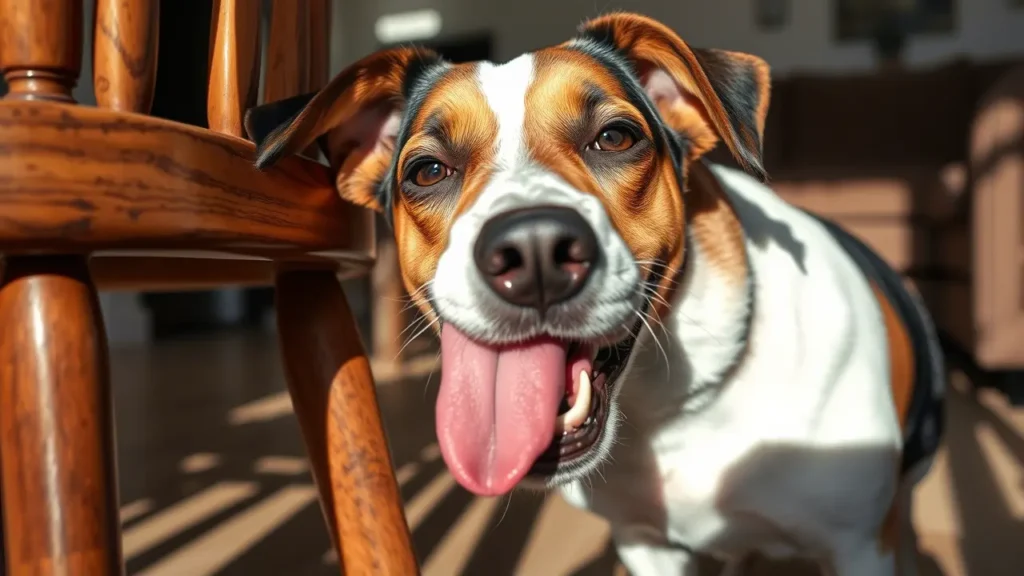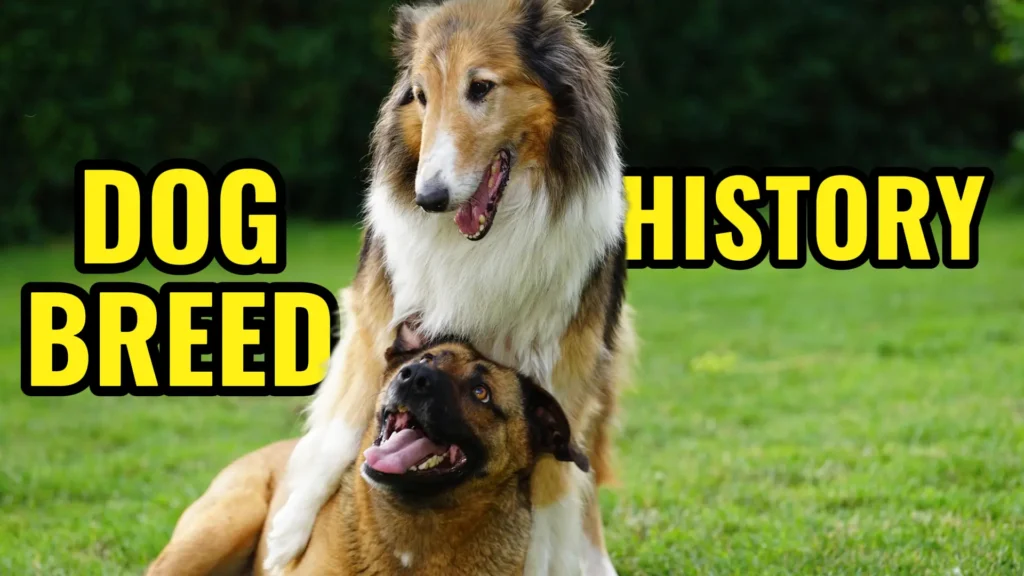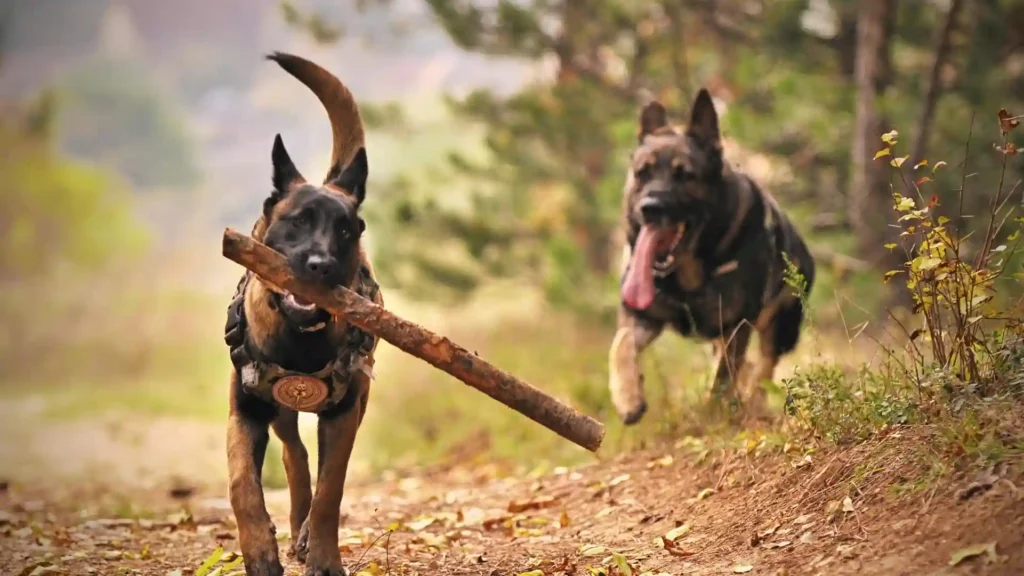Excessive licking is a burning issue for dog owners. Constant licking can be a sign of underlying issues. In this article, we’ll explore the reasons why your dog licks everything and what you can do about it.
Natural Instincts to Explore and Communicate
Dogs experience the world through their senses. Their mouths play a crucial role in this process. Dogs use their tongues to gather information about the environment. Licking is a way for them to “taste” and “smell” things. It helps them understand what they’re interacting with. This behavior is deeply rooted in their evolutionary history as scavengers and hunters.
In the wild, wolves would lick surfaces to gather scents and detect potential food sources. This instinctual behavior has carried over into domesticated dogs. Modern dogs lick floors, walls, and other surfaces to investigate smells or residues left behind by food.
For example, if you’ve spilled something on the floor—even if it’s been cleaned—your dog might still detect traces of the scent and lick the area.
Additionally, licking is a form of communication. Puppies lick their mother’s face to signal hunger and to encourage her to regurgitate food. As adults, dogs continue this behavior to show affection, submission, and to seek attention from their human companions.
Affection and Bonding
Dogs express affection by licking. It’s their way of saying, “I love you!” Licking releases endorphins in dogs, which makes them feel good. It’s also a behavior that strengthens the bond between you and your pet.
Excessive licking might simply be because they enjoy the positive reinforcement they receive from your attention.
Over time, this can create a cycle where the dog learns that licking leads to rewards. This reinforces the behavior. If you enjoy the affection and don’t mind the licking, you can reinforce it by giving your dog attention when they lick you. However, if you’d prefer to discourage the behavior, you can redirect their attention to other forms of interaction.
Anxiety and Stress
Excessive licking can sometimes be a sign of anxiety or stress. Licking is one way of self-soothing. An anxious dog resorts to licking as a way to calm themselves down. This behavior become compulsive if left unchecked. This leads to obsessive licking of objects, surfaces, and themselves.
Separation anxiety is a common cause of excessive licking. When left alone, some dogs lick furniture, carpets, and their own paws as a way to cope with the stress of being apart from their owners. Similarly, dogs that are exposed to thunderstorms or fireworks, may lick excessively as a way to self-soothe during these frightening events.
Separation anxiety and thunderstorms happens due to anxiety. In such cases, it’s important to consult a veterinarian or animal behaviorist for guidance. There are several strategies you can use to help reduce your dog’s anxiety, including desensitization training, creating a safe space for them, and using calming aids like pheromone diffusers.
Medical Issues
Licking can be a symptom of an underlying medical condition. Some health issues may cause excessive licking.
Dogs with allergies may lick their paws or other parts of their body to relieve itching. It could be a sign of an allergic reaction. Allergies can also cause skin irritation, redness, and inflammation. These irritaions prompt your dog to lick the affected areas in an attempt to soothe the discomfort.
Gastrointestinal Problems encourages dog to lick floor and walls. This behavior is thought to be related to nausea. It’s referred to as “excessive licking of surfaces.” Licking non-food item is worth discussing with your vet to rule out digestive problems. In some cases, dietary changes or medication may be necessary to address the underlying issue.
Dogs may lick certain areas of their body if they’re experiencing pain or discomfort. For example, if your dog is licking their joints, it could indicate arthritis. Similarly, licking the abdomen could be a sign of abdominal pain. If your dog is licking a specific area persistently, it’s important to have them examined by a veterinarian to determine whether there’s an injury.
In rare cases, excessive licking can be linked to nutritional deficiencies. If your dog isn’t getting enough of certain nutrients in their diet, they may lick unusual objects in an attempt to compensate. A balanced diet is essential for your dog’s overall health. Consult your vet if you suspect a nutritional issue.
Boredom and Lack of Stimulation

Dogs are intelligent and energetic animals. They require constant mental and physical stimulation. If your dog isn’t getting enough exercise, they may resort to licking as a way to entertain themselves. Boredom-induced licking can become a habit.
For example, a dog that spends long hours alone without stimulation develops repetitive behaviors. They lick the floor, walls, and their own paws repetitively. This type of behavior is similar to nail-biting in humans.
Provide your dog with plenty of opportunities for play, exercise, and mental enrichment to reduce reduce excessive licking. Puzzle toys, long walks, and training sessions are great ways to keep your dog engaged and prevent boredom-related behaviors.
Obsessive-Compulsive Disorder (OCD)
In some cases, excessive licking can be a sign of obsessive-compulsive disorder (OCD) in dogs. It’s characterized by repetitive, compulsive actions that serve no real purpose. Dogs with OCD lick themselves, objects, and surfaces for extended periods. This excessive licking causes skin irritation and hair loss.
Doberman Pinschers, German Shepherds, and Bull Terriers are more prone to developing OCD. The exact cause of OCD in dogs is not fully understood, but it’s believed to be influenced by a combination of genetic, environmental, and neurological factors. Dogs with OCD may exhibit other compulsive behaviors, such as tail-chasing, pacing, and spinning.
If you suspect your dog has OCD, it’s important to consult a veterinarian or animal behaviorist. Treatment may involve behavior modification techniques, increased exercise, and, in some cases, medication to help manage the condition.
What Can You Do About Excessive Licking?
If your dog’s licking behavior is becoming problematic, there are several steps you can take to address it:
- Rule Out Medical Issues: Find out if there is any underlying medical condition. Schedule a visit with your veterinarian to rule out allergies, gastrointestinal problems, and pain. Your vet may perform a physical exam, blood tests, and other diagnostic procedures to determine whether there’s a medical cause for the behavior.
- Provide Mental and Physical Stimulation: Make sure your dog is getting enough exercise and mental stimulation. Regular walks, playtime, and interactive toys help redirect their energy away from excessive licking. Puzzle toys, treat-dispensing toys, and obedience training are excellent ways to keep your dog mentally engaged and physically active.
- Address Anxiety: Work on creating a calm and predictable environment. Consider using calming aids, anxiety wraps, and natural supplements. In severe cases, your vet may recommend anti-anxiety medication. Desensitization and counter-conditioning techniques also help reduce anxiety-related behaviors.
- Redirect the Behavior: If your dog licks excessively, try redirecting their attention to a more appropriate activity. Positive reinforcement training also helps teach your dog alternative behaviors. For example, if your dog starts licking the floor, offer them a chew toy or engage them in a game of fetch to distract them.
- Limit Access to Problem Areas: Limit their access to licking surfaces temporarily. Baby gates, crate training, and closing off certain rooms help prevent your dog from engaging in unwanted licking.
- Consult a Professional: If the licking persists despite your efforts, consider consulting a professional dog trainer.
So these are the reasons dogs lick. Pay attention to your dog’s behavior and address potential causes. This way you can ensure that their licking remains a healthy and enjoyable part of their personality.




